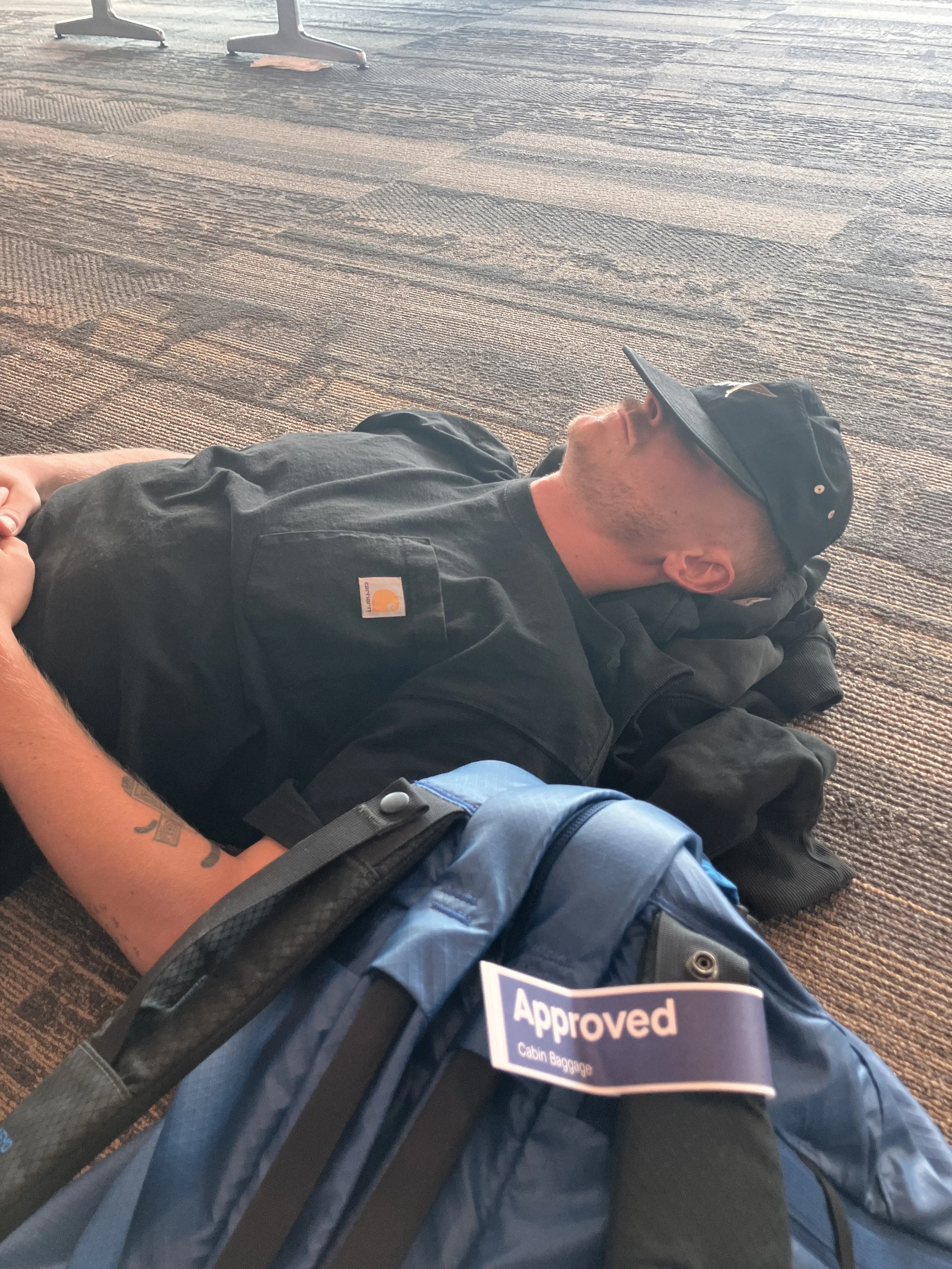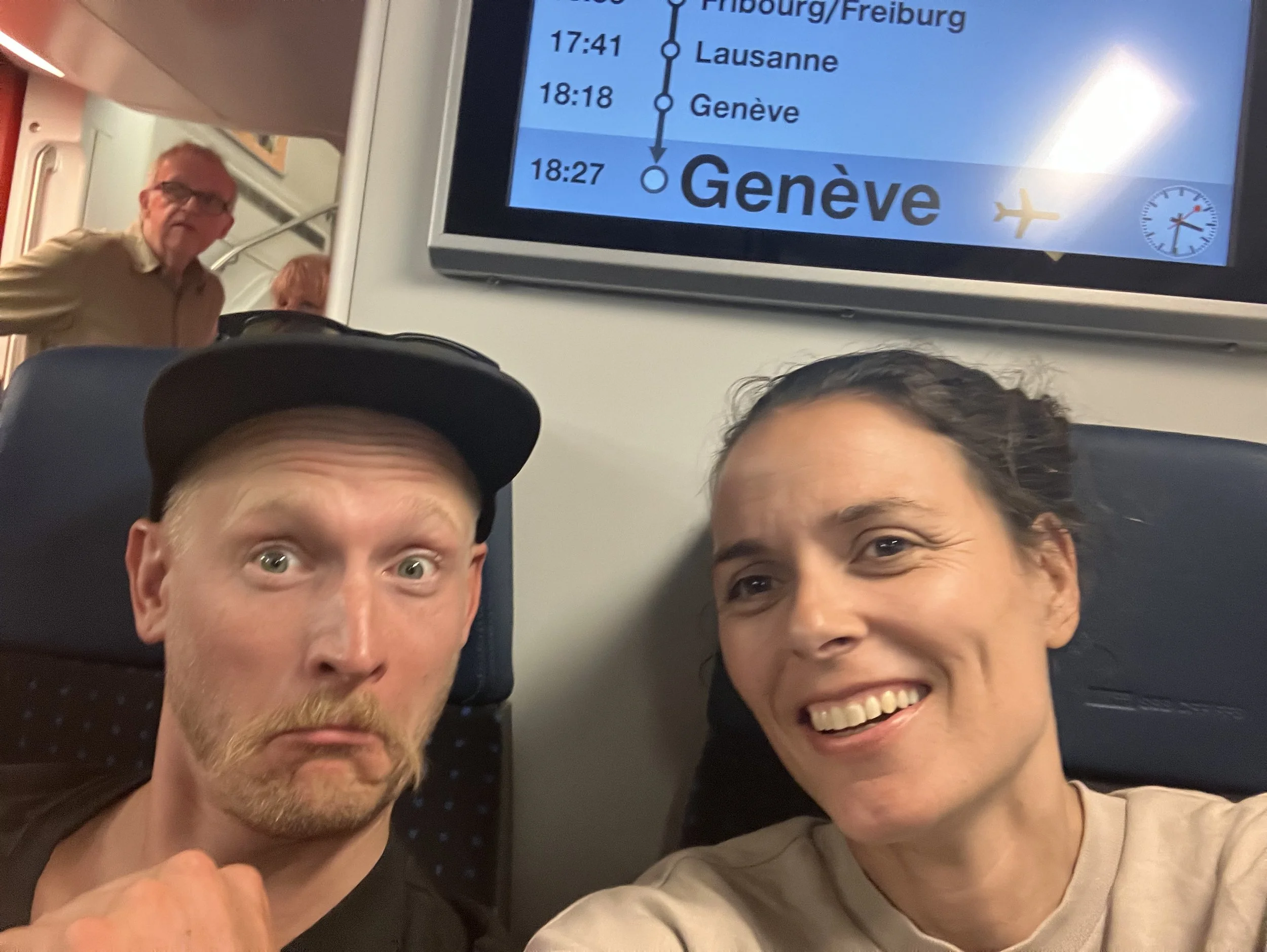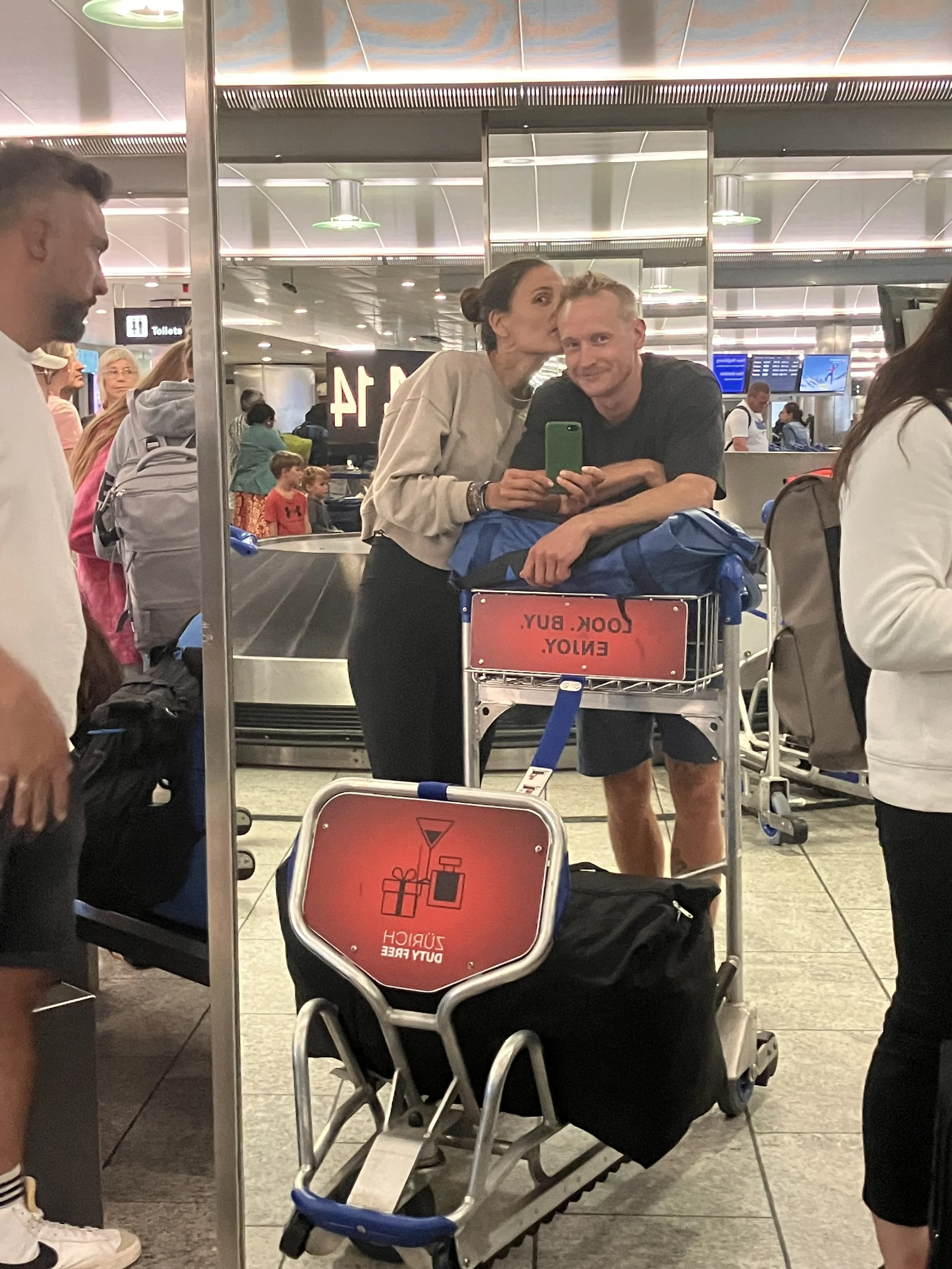
Grüessech Mitenang
Sorry, i ha nicht verstunde…
One of the first, and most obvious, things I noticed after arriving in Switzerland was that all the German I’d studied before coming… didn’t quite pay off the way I expected. I’m still not sure if Nicole forgot to mention this or just quietly let me find out on my own, but here’s the truth: they don’t speak German in Switzerland. Not the kind I learned, anyway.
Despite moving to a German-speaking region in Switzerland, they don't actually speak standard High German (Hochdeutsch), rather they speak Swiss German (Schweizerdeutsch) or, to be even more specific, since we moved to Bern, Bäärn deutsch.
The difference between High German and Swiss German isn’t just an accent or a dialect. It’s its own language and it goes like this: Swiss people will understand both high German and Swiss German, but if someone from Germany comes here? They won’t understand much. I’ve been told it can take a native German speaker nearly a year to become fluent in Swiss German.
The thing is, Swiss German isn’t a written language, at least not in any standardized form, which makes learning it uniquely challenging. Unlike High German, which is consistent worldwide, Swiss German exists almost entirely as a spoken dialect. This linguistic exclusivity is isolating for newcomers such as myself. There are no standard textbooks or formal lessons in Swiss German, meaning you can’t just go online and download a structured course. You have to immerse yourself in it. You have to hear it, over and over, spoken at full speed, peppered with words that aren’t in any dictionary. Eager to participate, I purchased a Swiss German course made by someone living in Zurich. I studied the vocabulary, practiced the phrases, and proudly tried to impress Nicole with my newfound “skills.” She gave me a kind smile, half-frown, and gently broke the news: none of what I said was used in Bern. “That’s Zürichdeutsch,” she said. “Not Bärndütsch.” It was so frustrating, what you learn in Zurich may not help you much anywhere other then Zurich. And that’s the thing, there’s not just one dialect, but dozens. While High German is taught in schools, used by the media, and standardized in writing, Swiss German is a patchwork of local vernaculars that vary dramatically from region to region, valley to valley, even village to village.
The roots of Swiss German trace back to Old High German, and over centuries evolved independently from the standard German spoken in northern regions like Germany. Isolated by the extreme geography, deep valleys and high passes, the dialects in Switzerland developed in parallel, not in unison. Which resulted in a linguistic mosaic where people in Basel speak very differently from those in Bern, Wallis, or Davos. In some rural areas, particularly in small alpine valleys, the dialects can be so specific and deeply entrenched that even Swiss people from other cantons struggle to fully understand them.
There’s a fierce regional pride embedded in the way people speak, especially in Bern. Dialect isn’t just a way to communicate, it’s a marker of identity. I found some Swiss Germans have zero desire to switch to High German, even when it’s obvious the other person is struggling. Once i was attempting to follow directions from some guy, and despite my inability to understand, he just kept repeating the same thing, clearly agitated that my dumbass didn't understand. I once watched a guy from Belgium trying to communicate with a native Berner, and the local just kept responding in Bern Deutsch, a flicker of annoyance in his face and unmoved by the clear confusion on the other guy’s face. It’s exclusive, like a private club where the price of admission is the time and effort it will take to learn it.
For all its difficulty, though, Swiss German has a rustic, countryside rhythm to it, it’s full of character. It’s not polished like High German or buttoned-up like French; it’s raw, full of quirks and flavor, shaped by valleys, mountain passes, and centuries of local pride. It wasn’t passed down in textbooks, but around kitchen tables, over beers at village pubs, shouted across farm fields and whispered to children in the form of a story at bedtime. You don’t study it so much as absorb it.
And I’ll be honest, it scares the shit out of me to think that my soon-to-be-born son will speak a language I can’t yet understand. That he’ll come home one day from school and rattle off something with his little Swiss accent to his mother, and I’ll just sit there, a stranger in my own house, unable to participate in the part of his life. That thought keeps me up at night. It lights a fire under my ass to figure it out, not just to quietly move about, but to be part of his world. To fail, sound stupid and brush it off like crumbs on a table. Because if my son is going to grow up speaking this beautifully, bizarre language, then I damn well better be right there learning it with him.
go ahead and try to get a translation for this
Switzerland has four official languages, each tied to a different region. In the western part of the country, everything shifts to French—road signs, menus, casual conversation, all in French. Head south, and you're in Italian territory, where the rhythm and tone change completely, buutt-a maaarioooo, da piiiiizaaa!!!. And out east, there's the rare and poetic Romansh—a Latin-rooted language that hardly anyone speaks, but somehow still thrives in small pockets. Even Nicole, who’s fluent in multiple languages, can’t understand a word of it.
And then there’s English. Contrary to what everyone told me before coming—"Don’t worry, they’ll speak English there!"—yeah, turns out… not really. English isn’t used on packaging, road signs, government forms, or any kind of public communication. My phone translator has become one of my best friends when Nicole isn't around.
Only time will tell if it sinks into my thick skull, but until then, I’ll keep bouncing off the rigid edges and jagged corners of German, dragging my tongue through its grammar like a lizard its tail.








